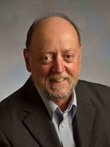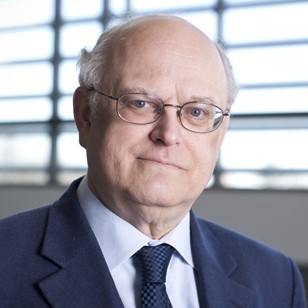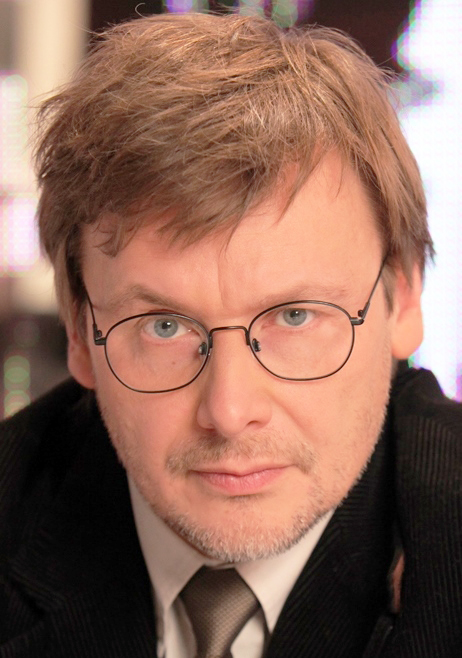Приглашенные докладчики
Prof. Jack Dongarra
 University Distinguished Professor, Department of Electrical Engineering & Computer Science, University of Tennessee Distinguished Research Staff, Oak Ridge National Laboratory
University Distinguished Professor, Department of Electrical Engineering & Computer Science, University of Tennessee Distinguished Research Staff, Oak Ridge National Laboratory
Jack Dongarra holds an appointment at the University of Tennessee, Oak Ridge National Laboratory, and the University of Manchester. He specializes in numerical algorithms in linear algebra, parallel computing, use of advanced-computer architectures, programming methodology, and tools for parallel computers. He was awarded the IEEE Sid Fernbach Award in 2004 and in 2008 he was the recipient of the first IEEE Medal of Excellence in Scalable Computing; in 2010 he was the first recipient of the SIAM Special Interest Group on Supercomputing’s award for Career Achievement. He is a Fellow of the AAAS, ACM, IEEE, and SIAM and a member of the National Academy of Engineering.
Prof. Thomas Sterling
 Professor of Informatics and Computing at the Indiana University (IU) School of Informatics and Computing, Chief Scientist of the IU Center for Research in Extreme Scale Technologies (CREST), USA
Professor of Informatics and Computing at the Indiana University (IU) School of Informatics and Computing, Chief Scientist of the IU Center for Research in Extreme Scale Technologies (CREST), USA
Dr. Thomas Sterling holds the position of Professor of Informatics and Computing at the Indiana University (IU) School of Informatics and Computing as well as serves as Chief Scientist of the IU Center for Research in Extreme Scale Technologies (CREST). Since receiving his Ph.D from MIT in 1984 as a Hertz Fellow Dr. Sterling has engaged in applied research in fields associated with parallel computing system structures, semantics, and operation in industry, government labs, and academia. Dr. Sterling is best known as the "father of Beowulf" for his pioneering research in commodity/Linux cluster computing. He was awarded the Gordon Bell Prize in 1997 with his collaborators for this work. He was the PI of the HTMT Project sponsored by NSF, DARPA, NSA, and NASA to explore advanced technologies and their implication for high-end computer system architectures. Other research projects included the DARPA DIVA PIM architecture project with USC-ISI, the Cray Cascade Petaflops architecture project sponsored by the DARPA HPCS Program, and the Gilgamesh high-density computing project at NASA JPL. Thomas Sterling is currently engaged in research associated with the innovative ParalleX execution model for extreme scale computing to establish the foundation principles guiding co-design for the development of future generation Exascale computing systems. ParalleX is currently the conceptual centerpiece of the XPRESS project as part of the DOE X-stack program and has been demonstrated in proof-of-concept in the HPX-5 runtime system software. Dr. Sterling is the co-author of six books and holds six patents. He was the recipient of the 2013 Vanguard Award and is a Fellow of the AAAS.
Dr. Bernd Mohr
 Deputy Division Head "Application Support" at Juelich Supercomputing Centre Forschungszentrum Juelich, Germany
Deputy Division Head "Application Support" at Juelich Supercomputing Centre Forschungszentrum Juelich, Germany
Bernd Mohr started to design and develop tools for performance analysis of parallel programs already with his diploma thesis (1987) at the University of Erlangen in Germany, and continued this in his Ph.D. work (1987 to 1992). During a three year postdoc position at the University of Oregon, he designed and implemented the original TAU performance analysis framework. Since 1996 he has been a senior scientist at Forschungszentrum Juelich. Since 2000, he has been the team leader of the group "Programming Environments and Performance Analysis". Besides being responsible for user support and training in regard to performance tools at the Juelich Supercomputing Centre (JSC), he is leading the KOJAK and Scalasca performance tools efforts in collaboration with Prof. Felix Wolf of TU Darmstadt. Since 2007, he also serves as deputy head for the JSC division "Application support". He was an active member in the International Exascale Software Project (IESP/BDEC) and work package leader in the European (EESI2) and Juelich (EIC, ECL) Exascale efforts. For the SC and ISC Conference series, he serves on the Steering Committee. He is the author of several dozen conference and journal articles about performance analysis and tuning of parallel programs.
Prof. Konstantin Anokhin
 Professor of Neuroscience at the National Research Center “Kurchatov Institute” and the Director of the Center for Neural and Cognitive Sciences at the Moscow State University, Russia
Professor of Neuroscience at the National Research Center “Kurchatov Institute” and the Director of the Center for Neural and Cognitive Sciences at the Moscow State University, Russia
Konstantin Anokhin is the Professor of Neuroscience at the National Research Center “Kurchatov Institute” and the Director of the Center for Neural and Cognitive Sciences at the Moscow State University, Russia. Prior to these appointments Prof Konstantin Anokhin spent most of his scientific career at the Institute of Normal Physiology of the Russian Academy of Sciences in Moscow where he is still the head of the Laboratory for Neurobiology of Memory. He has also been a visiting fellow at the Rudolf Magnus Institute of Neuroscience in Utrecht, a visiting professor at the Sub-Department of Animal Behavior and visiting fellow at Wolfson College, University of Cambridge and a visiting professor at the Max Planck Institute of Biophysical Chemistry in Gottingen. Konstantin Anokhin has made contribution to the studies of molecular and cellular mechanisms of learning and memory, identification of genes involved in consolidation of the long-term memory, characterization of memory reconsolidation mechanisms and development of new techniques and approaches for the whole brain cell-resolution imaging of cognitive neuronal networks in the animal brain. His recent work also include development of a fundamental theory of higher brain functions that extends Pavlovian traditions of physiology of higher nervous activity. Konstantin Anokhin has contributed to over 200 research papers in peer reviewed journals. He is a Corresponding Member of the Russian Academy of Sciences.
Prof. Dr. Dr. Thomas Lippert
Professor Dr. Dr. Thomas Lippert, Jülich Supercomputing Center, Germany
Thomas Lippert received his diploma in Theoretical Physics in 1987 from the University of Würzburg. He completed Ph.D. theses in theoretical physics at Wuppertal University on simulations of lattice quantum chromodynamics and at Groningen University in the field of parallel computing with systolic algorithms. He is director of the Jülich Supercomputing Centre at Forschungzentrum Jülich, member of the board of directors of the John von Neumann Institute for Computing (NIC), and he holds the chair for Computational Theoretical Physics at the University of Wuppertal. He is the coordinator of the European Exascale-Projects DEEP, DEEP-ER and DEEP-EST, he is a member of the scientific and infrastructure board of the human brain project, and since July 2018, he is chair of the Council of the Partnership for Advanced Computing in Europe (PRACE). Thomas' research interests include lattice gauge theories, quantum computing, numerical and parallel algorithms, and modular supercomputing.
